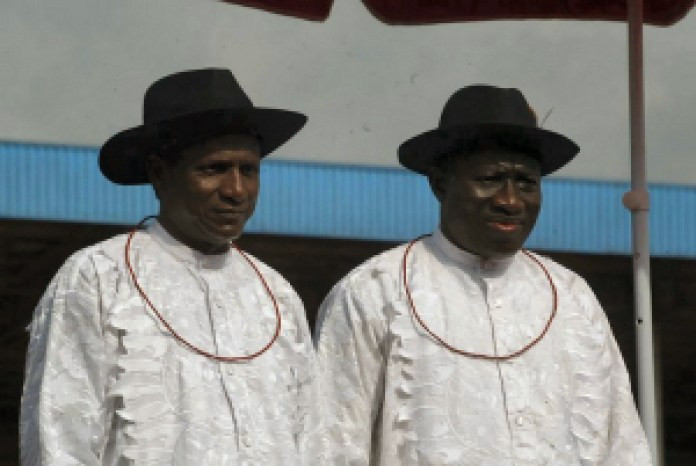Businessman, Femi Otedola has narrated how Ibrahim Babangida, former head of state, encouraged ex-President Goodluck Jonathan to sit in the vacant c
Businessman, Femi Otedola has narrated how Ibrahim Babangida, former head of state, encouraged ex-President Goodluck Jonathan to sit in the vacant chair of his predecessor, Umaru Musa Yar’Adua, during a federal executive council (FEC) meeting.
In 2009, when the late Yar’Adua travelled abroad for medical treatment, he failed to hand over power to Jonathan, his vice-president at the time. His long absence had sparked a constitutional crisis and created a power vacuum which resulted in a campaign for Jonathan to take charge of the country.
Amid the agitation which shook the country between late 2009 and early 2010, Otedola said Babangida — who marks his 80th birthday on August 17, 2021 — sent a message through him to Jonathan.
The businessman made the disclosure in his forthcoming book on business lessons which will be released before the end of 2021.
“Worried by the tension and uncertainty, I decided to do something on my own. In the first week of February 2010, I went to Minna, Niger state, along with Hajia Bola Shagaya, to commiserate with General Ibrahim Babangida over the death of his wife, Maryam.
“At his Hilltop residence, we spoke on a wide range of issues, but I told him I needed to discuss an urgent and vital issue. He took me to his study, where two of us were alone. I told him that the state of the nation had been agitating my mind,” Otedola wrote.
Otedola said during the conversation, he put a question to Babangida on the political crisis in the country: “Your Excellency, how can we get out of this logjam? The political heat is too much.”
He quoted the former head of state as saying: “Femi, advise your friend that when he gets to the Council Chambers next week for the Federal Executive Council (FEC) meeting, he should go and sit on Yar’Adua’s chair.”
Otedola added: “I found that fascinating and assured him I would pass the message across. I travelled back to Abuja by road in the evening and went straight to have dinner with Dr Jonathan. I did not waste time in delivering General Babangida’s message to him.
“He nodded and asked me, ‘What do you think?’
“I laughed and said, ‘Be a man, Your Excellency. Go and sit on that chair!’
“He looked at me for some time and responded that he would think about it. A week later, on Tuesday, February 9, the National Assembly adopted the famous ‘Doctrine of Necessity’ to make Dr Jonathan the Acting President pending the return of President Yar’Adua from his medical leave. Behind-the-scene moves by prominent Nigerians preceded this decision. The legislative resolution was unprecedented, but the nation had been tensed up, and the fault-lines so stoked that an unusual solution was needed to address the unique situation.
“With Jonathan now legally empowered to act as President, there remained the critical optics: would he stand-in for the President confidently and authoritatively? Or would he try to maintain a subdued outlook? The following day was the FEC meeting. As Dr Jonathan entered the Council Chamber, he made to sit on the chair of the Vice President—his usual seat.
“As the protocol officer pulled out the VP’s chair, Dr Jonathan marched towards the seat reserved for the President. And he sat on it! That was the moment Dr Goodluck Jonathan took control of power. By that act, he sent a strong signal to all Nigerians that he was now in charge. The same day, Jonathan even reshuffled the cabinet.”
Yar’Adua died on May 5, 2010, after his protracted sickness, and Jonathan was sworn in as his successor. Jonathan contested the 2011 presidential election and won, but he lost his reelection bid in 2015 after President Muhammadu Buhari defeated him.
